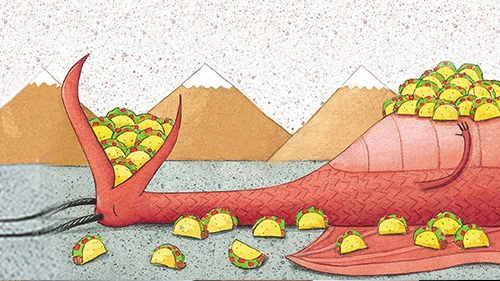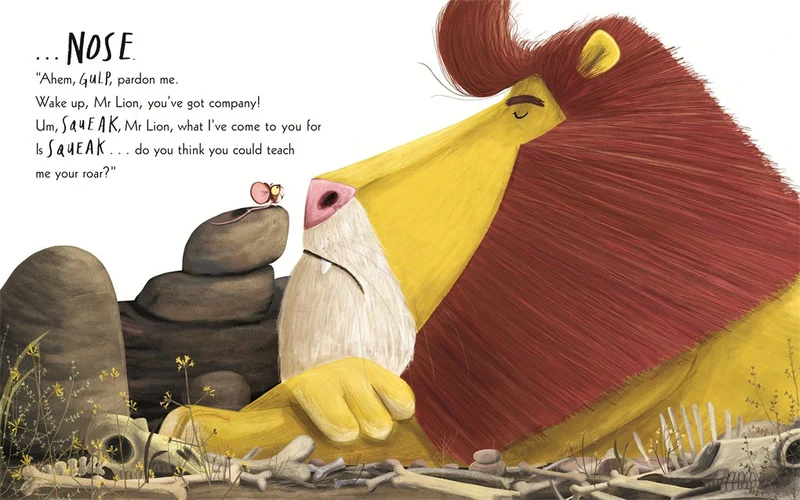What To Do When Your Brain Gets Stuck Book

Living in a society where everyone realized the power of ideas would be fantastic. What To Do When Your Brain Gets Stuck Book?
Should we do, you most likely would hear the term "should" a lot less frequently.
Ask yourself: How often in a day do you employ the term "should"? Regarding the world at large, about yourself, about others, about If you are among the 100 million or more full-time workers in America, chances are many of those "shoulds" revolve on your workplace and the people in it.
- The 20 Most Anticipated Books of 2024, According to 'Marie Claire' Editors
- 11 Fantasy Novels to Look Forward to in 2024
- The Wonderful Things You Will Be Summary - A Complete Guide
How often do you believe or express ideas like:

- I ought to have done better.
- We should have presented that differently.
- "I should have spoken up more."
- "She should have asked me to do that."
Many of us so criticize others and ourselves using the word "should," all day long—often without even recognizing it. But "should" benefits nothing and no one and is only a subdued means of passing judgment on you and others close by.
Fortunately, though, I have a fantastic bio-hack for you. Try substituting a positive frame for the negative one used in "should". Stated otherwise, try this next time you find yourself contemplating the word "should":
Rather of "I ought to have spoke in the meeting today."
Try.... "I really would have liked to speak up in today's meeting."
Rather than... "She ought to have asked me to join the team rather than Kelly."
Experiment... "It would feel great if she had asked me to join the team."
Rather than… "We should have given that presentation better."
Attempt... "It would feel great if we had given that presentation differently."
Stated differently, you are not just expressing your emotions and providing a constructive way to have your needs satisfied, so transcending the guilt, blame, and "should" judgment. Win-forward!
"Should-ing" is only one of 10 cognitive distortions that cause negative thinking; all that negative thinking could be keeping you mired in your daily life and career. Let's start right here with an aim of de-stigmatizing and de-mystizing them once and for once.
1. All-or nothing thinking

How often do you view items as either black or white, yes or no, this or that? Like most people, you most of the time undoubtedly think this way. Hardwired for all or nothing thinking, the brain seeks to organize data into one absolute category or another for protection.
2. Overgeneralisation
Overgeneralizing causes one to see a negative incident as an endless sequence of failure. Unbelievably, this is another built-in defense mechanism of the brain: the belief that, regardless of your actions, everything is going to remain the same—that is, bad. Though it is a mental process meant to guard you, it does not help you over long terms.
3. Mental Filtering
Another aspect of being human is dwelling on the negative and neglecting the positive. As the adage goes, "the brain is like Velcro for negativity and Teflon for positivity." Research indicates that in terms of how they individually imprint on the brain, negative events are five times more effective than good ones. Stated differently, it takes five compliments for your mind to bounce back from one critique or five positive experiences to offset one unpleasant one.
4. Discounting the positives
You are minimizing the positives if you claim that your achievements or good traits are not important or count nothing. When someone expresses gratitude, do you say things like:
"Oh, it's no great deal; don't worry about it."
Nothing.
"This ancient relic? I just learned it was on sale.
Discount and reduce, and you shrink yourself.
5. Drawing Conclusions by Jumping

Usually, we draw two quick judgments: by fortune telling and by mind-reading.
If you mind-read, you would assume—without clear data—that people are reacting unfavorably to you. Have you ever got a text message you immediately overanalyzed? Mind-reading allowed you to assume the book meant one thing while it might have meant something very different. That is still another neurological ability: your mind filling in voids.
If you fortune tell, you often find yourself projecting hazy predictions of things failing to live up to your expectations. Once more, this is your brain's method of preparing you to be shielded before any bad luck has ever started.
6. Minimization or Magnification
In this circumstance, you either minimize the true value of things in a negative way or you inflate events irrelevant to their actual relevance, therefore generating all kinds of drama and sorrow in your life. Both are really common; the mind loves to leap to either extreme or the other.
7. Emotional Arguments
Emotional reasoning helps you to create and defend your conclusions and opinions depending on your transient emotions in every instant. "I feel like an idiot, so I really must be one," you say, or "I don't feel like doing this, so I'll put it off until I do." People often confuse their emotions for truth; in fact, they are as transitory as our ideas.
8. "Should" Lines
You know about this one already! With "should," "shouldn't," "must," "ought to," "have to," or similar offenders, you criticize yourself or another person. Every time you say, "You should," you are engaging in cognitive distortion that most certainly will have negative results.
9. Categorizing
You can tell yourself, "I am a failure," when you misclassify a mistake as a deficiency rather than acknowledging, "I made a mistake."What To Do When Your Brain Gets Stuck Book? sorting and sifting, categorizing. Either good or awful, hot or cold, up or down, love or hatred. We label—even when it pains us—because we have no idea how to remain still amid ambiguity.
10. Customizing and Blaming
You are personalizing or blaming if you blame yourself for something you were not responsible for or if you blame other people for circumstances your own attitudes and behavior may have helped to cause. But while personalization prolongs a sense of control in an unstable environment, blame is only a means of release for your suffering onto someone else. Any time we practice one of these, we are simply mismanaging our misery.
Why then is all this relevant to know, anyway?
Knowing frequent cognitive distortions helps us to slide into softness for acceptance of others and ourselves. Once we understand we are all thinking in similar ways, we usually avoid harshly criticizing others or ourselves.
Creating the pause in mindfulness depends on knowing when you are in a cognitive distortion. Taking you along for the voyage helps you establish enough silence to find what it is you're really thinking when you sit still long enough to access the pause between your thoughts instead of allowing them spiral into anarchy.
You can identify the cognitive distortions you are imparting between one idea and the next and decide to think differently in that little interval.
You can let several things be true, concurrently, instead of letting the sifting, sorting, categorizing, and labeling tendencies of the brain take over. One extreme or the other, rather than thinking in black-and- white, let many things be true all at once.
The disarray of ideas constantly keeps the mind occupied. What To Do When Your Brain Gets Stuck Book? which functions like a large CPU. The brain and the mind cooperate day and night to try to make sense and order out of your world; but, in the lack of information, the brain and the mind begin to create their own stories. Though the result of all that story-writing is often cognitive illusions, they do not wish to live in a position of unknowing.
Learning to shut off and sit invites that most real, loving side of you forward. With effort and focus, over time you should be living your life from that point of authenticity and self-love more frequently.
FAQs
What to do when the brain gets stuck?
Guide children and their parents through the cognitive-behavioral approaches applied to treat obsessive compulsive disorder by means of What To Do When Your Brain Gets Stuck. Children who use this interactive self-help book become super-sleuths able to identify and more sensibly react to the tactics of OCD.
Why does my brain feel stuck?
Nutrient deficits, sleep problems, bacterial overgrowth from too much sugar, melancholy, or even a thyroid disease can all cause brain fog. Eating too much and too often, inactivity, inadequate sleep, persistent stress, and a bad diet are some major brain fog triggers.
How can I activate my brain again?
Engage in recreational gaming.
Read several different kinds of books.
Use every sense available to you.
Daily prayer.
Learn a fresh ability.
Exercises your brain.



